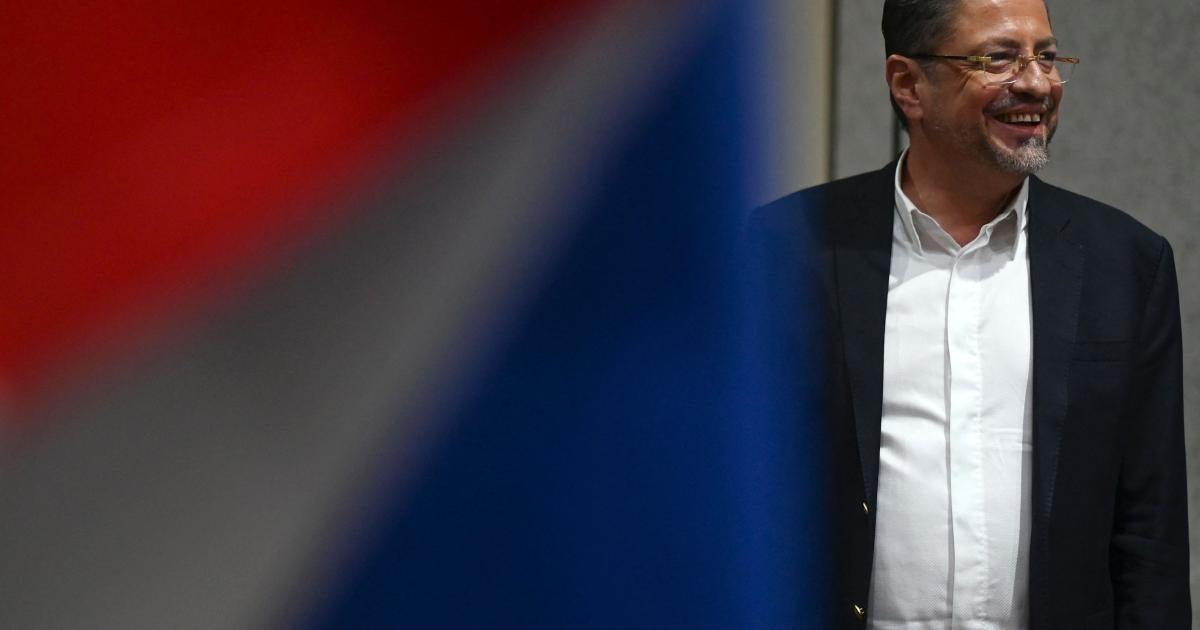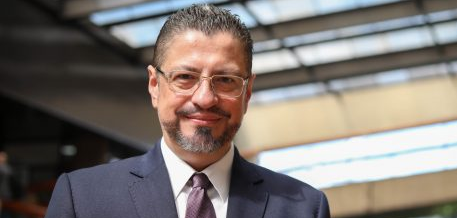Chaves is the only politician and president I have seen in Costa Rica these last 15 years who is so highly regarded by citizens. What that clearly means is that the people more than agree with him in the design and implementation of his public policies.
The national institutions of Costa Rica, however, are failing, while claiming they follow the law. So, I think about Mahatma Gandhi having referred to the statement of American philosopher Henry David Thoreau: when a law is unjust, the right thing is to break the law.
My professor Graham Murdock at the University of Bergen told us that nothing can be more important than the general interest. Of course, therein lies the quintessence of the raison d'être of public policy, which in turn rests on the Constitution.
The idea of a mediocracy was coined by philosopher Alain Denault. He tells us that since the end of the 20th century, we have lived in a mediocracy that dismantles the sovereignty of a country in favor of multinational corporations. (I remember with crystal clarity the times that former president Carlos Alvarado bragged about his corporate governance). It has turned the democracy of a country into a rhetoric that is purely managerial (that is to say, without criteria of any kind) and highly coercive. Again, I’m reminded of the government of Carlos Alvarado — we obviously don’t want to fall back into something like that.
Denault tells us that mediocrity is currently overrepresented. Mediocrity embodies the average, wanting to adjust to the social standard. At base, it is the well-known comfort zone (hateful, since wisdom tells us that nothing grows in that place). In Costa Rica, for example, bureaucratic institutions like the Ombudsman for the Inhabitants and some others are being joked about these days in cartoons that circulate in social media.
Unfortunately, there are many more institutions that would fit in those cartoons, which portray their criteria and actions as merely technical, adhering totally and absolutely to the law. However, what is a law if it doesn’t represent the people, their desires and needs?
In the university, Denault tells us, that instead of the intellectuals of yesteryear, today the figure of the expert dominates. This lack of true independence in the intellectual is somewhat dramatic, since it does not generate university academics and students who think critically, but rather workers for the system (or just for a salary). Especially when they are luxury salaries, as they’re being paid at public universities.
Denault warns us that since the end of the 20th century, everything that refers to the general interest, sovereignty, mutual aid and the republic has been reduced to concepts like civil society instead of citizens, consensus instead of debate.
It was precisely two decisions of Costa Rica’s Constitutional Chamber that led me to this reflection. Two rulings showed that the judges of the CC remain at that level of mediocracy. When a public place like the Chamber favors a verdict that endangers public health (and even more, the life of a majority in favor of a minority). Or when it fails the Costa Rican people in order to favor foreign labor (under conditions of semi-slavery, I might add). And all to the disadvantage of, once again, the majority of Costa Rican nationals.
We Costa Ricans have achieved far-reaching objectives, without a doubt. And there have been struggles of all of the people that yielded achievements for the well-being of all the citizens of this blessed homeland. However, the Chamber insists on playing tricks on us, favoring instead spurious interests.
According to Denault, those using the power of semantics invent terms that both career-obsessed politicians and grant-obsessed academics repeat unscrupulously. He calls it a dialectic that creates an anesthetic revolution — making citizens forget their right for better living conditions, living in a kind of limbo without memories or principles. Citizens in Costa Rica seem to be starting to realize this, and courageously begin to rise from that imposed amnesia.
We must reconnect with real meaning or significance, the philosopher Denault warns us, with terms that have memory and critical range. Language is what helps us question things and debate openly. Therefore, it is necessary to break from the modern managerial language and the hypnosis it tries to impose.
Currently, ideas see their debates reduced to language artifices, where whomever dares to raise their voice is disregarded with epithets like “extremist,” “xenophobic,” “racist,” etc.
We are at a tipping point, both political and moral. Collectively, we deserve better.



